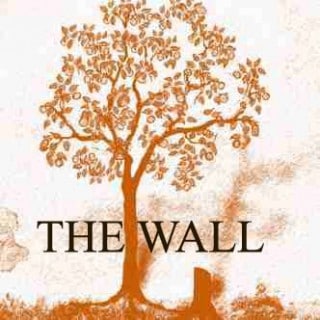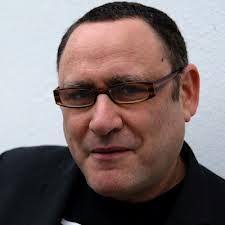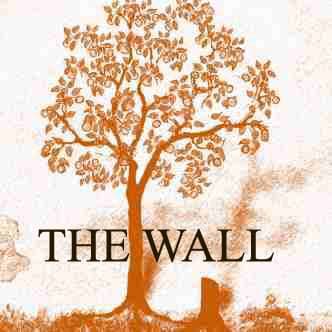Reviewed by Gilad Atzmon
The Wall is a thought provoking new play based on Douglas Watkinson’s own experiences.
At the age of sixty, David visits a British military cemetery in Israel. For the first time in his life he is about to call upon the grave of his father Ralph who was blown up in 1947 at the age of twenty five by the Jewish Stern Gang.
The play is a unique encounter between David, a middle-aged Englishman, and his dead father Ralph, a young English Corporal at the time of the British Mandate. It is a meeting through which we, the audience, can ‘witness’ six decades of Israeli brutality, through the eyes of a dead British Corporal buried in foreign soil along side thousands of his peers. The play is a cleverly constructed dialogue between a sixty year old son: a man who grew up in post WWII Britain, an indoctrinated gentleman and a liberated dead father who is free to call things what they actually are.
The play is a journey into the heart of the Israeli-Palestinian conflict. It dares to look into the role of the British in the creation of yet another endless war. It is also courageous enough to review and assess the cruelty of Jewish terror-groups towards the British military. It goes deeper than most political commentators and academics, for it is brave enough to look honestly at the imaginary distinction between Jews, Israel and Zionism. Ralph is obviously impervious to political correctness — he sees Zionists and Israelis for what they are — namely, Jews. Initially, David couldn’t agree less, insisting that Jews are kind and compassionate people. He would contend, that it is merely the Israelis and Zionists who may be slightly problematic.
As the play evolves, David witnesses Israeli brutality for himself. And once he has visited a Palestinian home he falls in love with Palestine, immediately empathising with the Palestinian plight. Overnight, David is transformed into a Palestinian advocate. He then meets Israeli soldiers at a road block and he encounters the arrogance of an MIT lieutenant, a new Jewish-American immigrant who claims ownership of someone else’s land. He also meets a Romanian female sergeant who teaches him a lesson in Israeli rudeness.
These events are enough to transform David into an anti-separation wall activist. Needless to say that by that time, the old school English tie is replaced by a Palestinian scarf, hung loosely around his neck.
As the the play unfolds, we witness a continuum of six decades of merciless vengeance enacted by new comers, people who do not belong to Palestine. You can call them Israelis, or Zionists, or Jews — in fact it doesn’t really matter — whoever or whatever they are, they must be stopped.
The play is on for another week. If you happen to be in or around London, you don’t want to miss it. The play once again reaffirms my view that art and beauty are leading the journey towards justice, for art excels precisely where academia, politics, activism, journalism and the so called Left have failed so miserably.
Untill Monday 6 June 2011
Tuesday to Saturday at 8:30pm
Saturday & Sunday at 4:45pm
Tickets
£16 (Concs £14)
To Book
0870 033 2733

Gilad Atzmon is an Israeli-born British jazz saxophonist, novelist, political activist and writer.
Atzmon’s album Exile was BBC jazz album of the year in 2003. Playing over 100 dates a year,[4] he has been called “surely the hardest-gigging man in British jazz.” His albums, of which he has recorded nine to date, often explore the music of the Middle East and political themes. He has described himself as a “devoted political artist.” He supports the Palestinian right of return and the one-state solution in the Israeli-Palestinian conflict.
His criticisms of Zionism, Jewish identity, and Judaism, as well as his controversial views on The Holocaust and Jewish history have led to allegations of antisemitism from both Zionists and anti-Zionists. A profile in The Guardian in 2009 which described Atzmon as “one of London’s finest saxophonists” stated: “It is Atzmon’s blunt anti-Zionism rather than his music that has given him an international profile, particularly in the Arab world, where his essays are widely read.”
His new book The Wandering Who? is now availble at Amazon.com
ATTENTION READERS
We See The World From All Sides and Want YOU To Be Fully InformedIn fact, intentional disinformation is a disgraceful scourge in media today. So to assuage any possible errant incorrect information posted herein, we strongly encourage you to seek corroboration from other non-VT sources before forming an educated opinion.
About VT - Policies & Disclosures - Comment Policy




